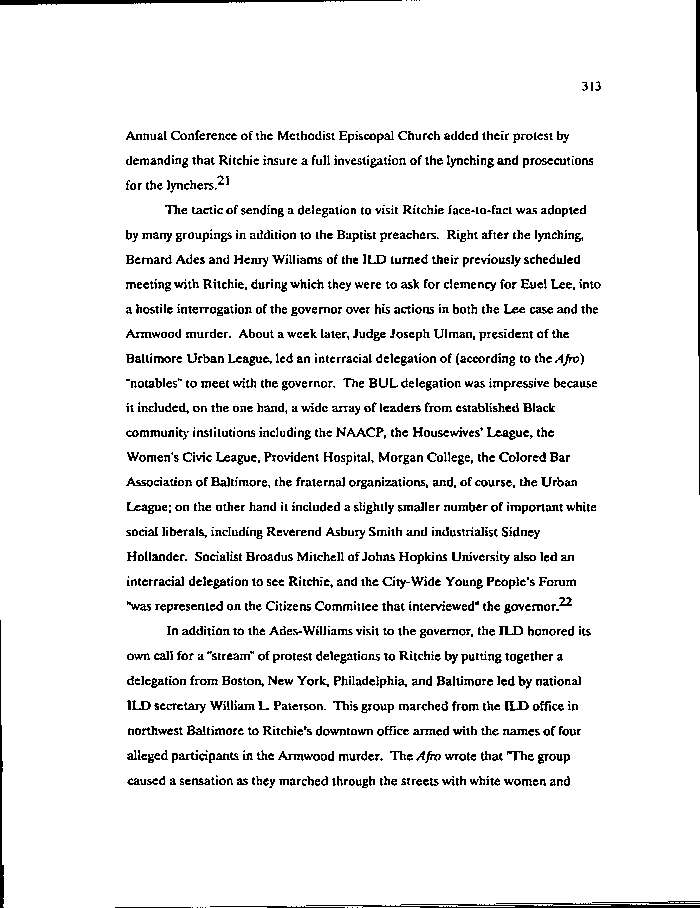|
313
Annual Conference of the Methodist Episcopal Church added their protest by
demanding that Ritchie insure a full investigation of the lynching and prosecutions
for the \ynchcTS.
The tactic of sending a delegation to visit Ritchie face-to-fact was adopted
by many groupings in addition to the Baptist preachers. Right after the lynching,
Bernard Ades and Henry Williams of the ILD turned their previously scheduled
meeting with Ritchie, during which they were to ask for clemency for Euel Lee, into
a hostile interrogation of the governor over his actions in both the Lee case and the
Armwood murder. About a week later, Judge Joseph Ulman, president of the
Baltimore Urban League, led an interracial delegation of (according to the Afro)
"notables" to meet with the governor. The BUL delegation was impressive because
it included, on the one hand, a wide array of leaders from established Black
community institutions including the NAACP, the Housewives' League, the
Women's Civic League, Provident Hospital, Morgan College, the Colored Bar
Association of Baltimore, the fraternal organizations, and, of course, the Urban
League; on the other hand it included a slightly smaller number of important white
social liberals, including Reverend Asbury Smith and industrialist Sidney
Hollander. Socialist Broadus Mitchell of Johns Hopkins University also led an
interracial delegation to see Ritchie, and the City-Wide Young People's Forum
"was represented on the Citizens Committee that interviewed" the governor.
In addition to the Ades-Williams visit to the governor, the ILD honored its
own call for a "stream" of protest delegations to Ritchie by putting together a
delegation from Boston, New York, Philadelphia, and Baltimore led by national
ILD secretary William L. Paterson. This group marched from the ILD office in
northwest Baltimore to Ritchie's downtown office armed with the names of four
alleged participants in the Armwood murder. The Afro wrote that The group
caused a sensation as they marched through the streets with white women and
|

